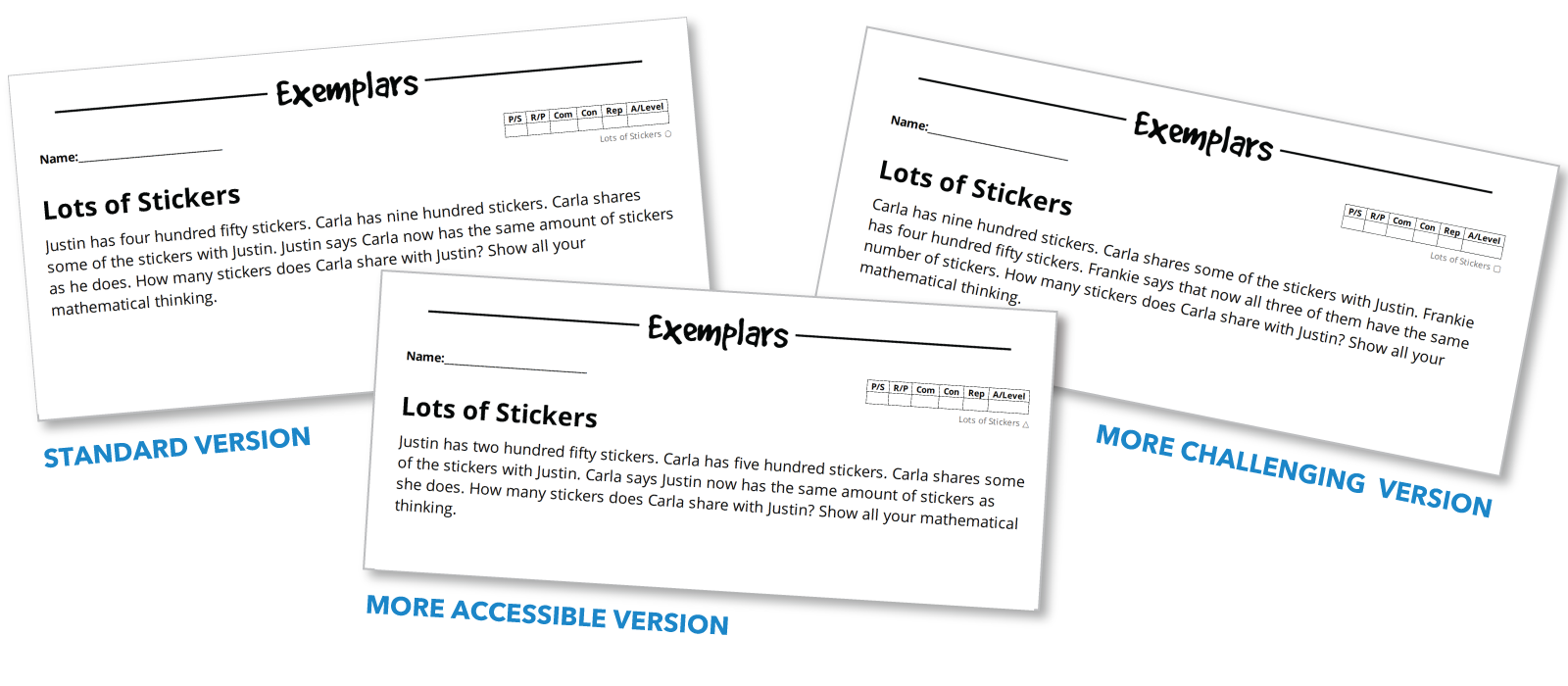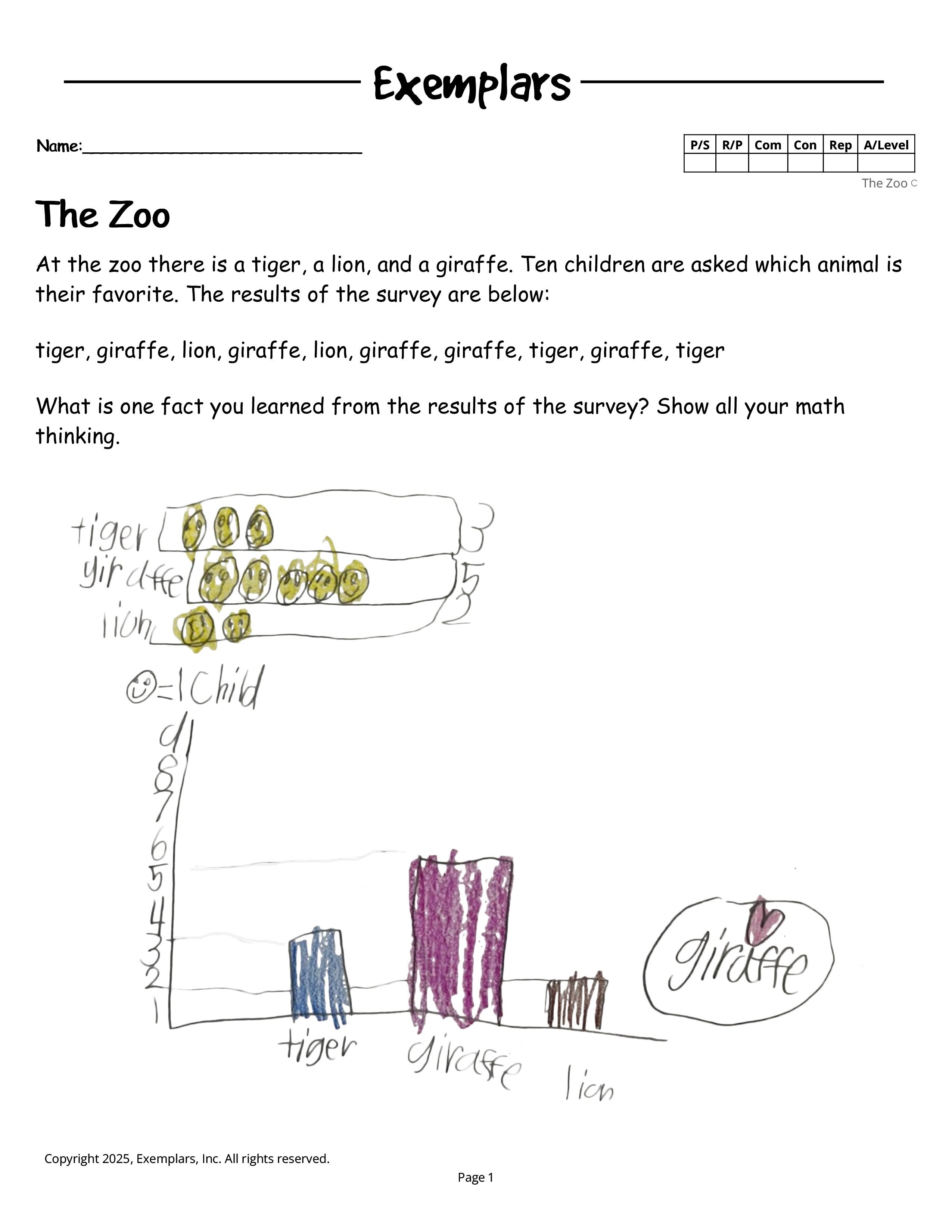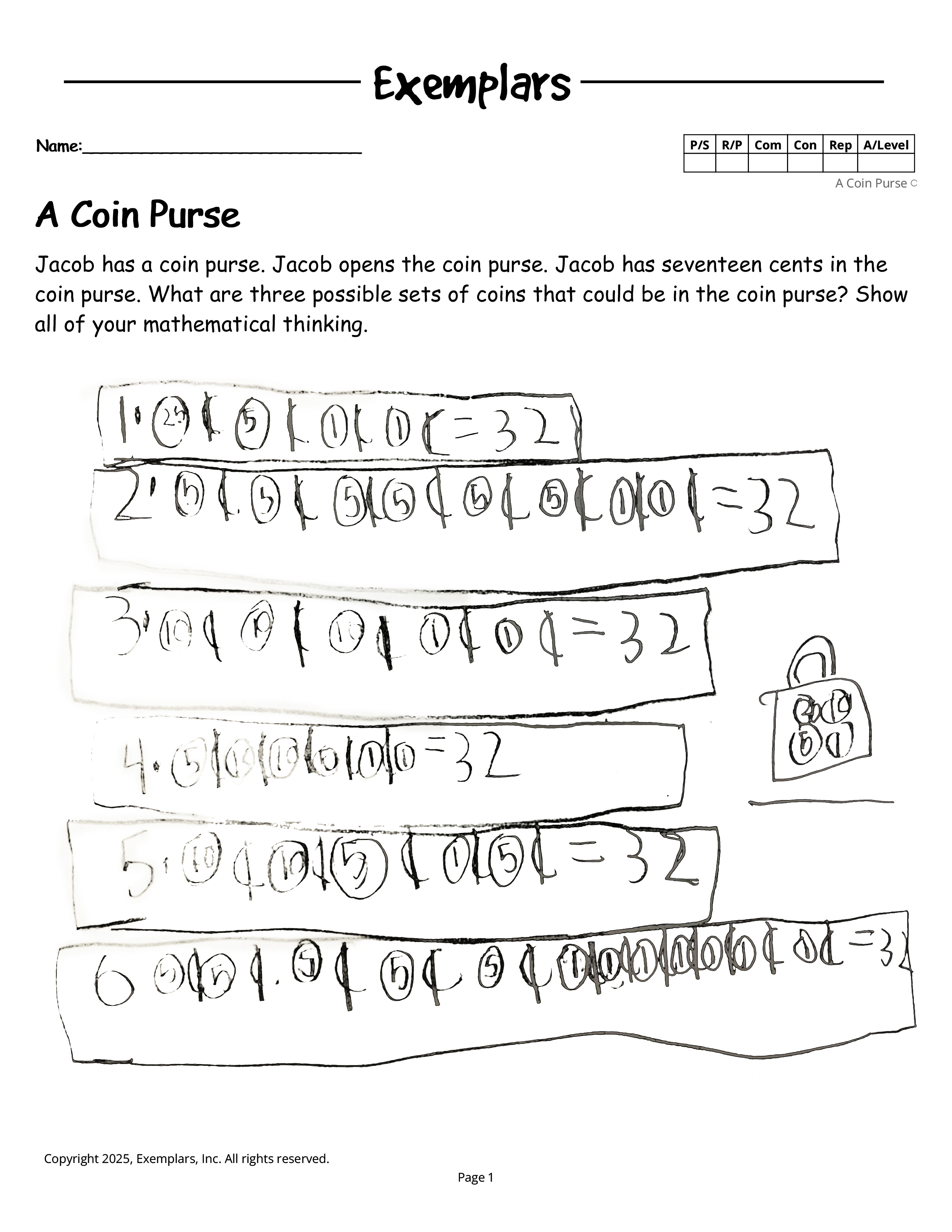Exemplars performance tasks have been a key factor in how I’ve encouraged my students to persevere when problems are tough and keep looking for a solution. These performance tasks pose authentic, real-world problems that require a deep level of thinking from the student. They are aligned with Depth of Thinking Level 3, which means they require reasoning, planning, using evidence, and a higher level of thinking than an average word problem. They require students to show their mathematical thinking, not simply state an answer. You might be questioning whether these skills are much too complex for a young child to exhibit, but I’m here to tell you that students can develop these skills, as long as we, as educators, provide them with the opportunity and needed guidance. In my experience, if we raise our expectations for what our students are capable of, they will meet or exceed those expectations.
The Importance of Problem Solving in the Primary Grade Mathematics Classroom
Written by Mandy Miller, First-Grade Teacher, TX

It is my belief that in order for our students to be successful outside the four walls of the classroom, we need to encourage them to think critically and creatively and develop metacognitive skills. The learning opportunities we provide our youngest learners can help to develop these important skills. The earlier students are given chances to engage in productive struggle, the quicker they will internalize having a growth mindset and persevering when challenges arise. One way we can build these skills in young students is through problem solving in math. Oftentimes, in intermediate grades, we see students engaging in two-step word problems that require critical thinking to solve. But what if we fostered these skills in the primary grades, too? Enter: Exemplars Performance Tasks!
Exemplars Encourages Students to Persevere
"The earlier students are given chances to engage in productive struggle, the quicker they will internalize having a growth mindset..."
As with any learning experience, I have found it best to provide students with adequate modeling and guided practice to ensure success when students work independently. I like to launch Exemplars in my classroom by working through a performance task in a whole group setting. This allows me to model working through the Exemplars Problem-Solving Process that will be used during all subsequent tasks. It also allows me the opportunity to model what I expect student work to look like. As mentioned above, Exemplars is meant to encourage students to show all their thinking. If students do most of their thinking mentally, they oftentimes are tempted to simply write an answer. By working through a task together, you can demonstrate what you expect their work to look like. I model how I can take the thinking done in my head and explain it on paper. I have found that working through the first task in this way makes for higher-quality student work moving forward.

Another key feature of Exemplars performance tasks is the ability to differentiate for various student ability levels. Each task contains three versions that allow you to meet the needs of students who require a more accessible version as well as students who need more of a challenge. My favorite way to use the differentiated tasks is to allow students the choice of which task they feel best meets their needs. More often than not, students will choose the appropriate level and it allows for increased ownership over their work. Regardless of the level students are working on, they are given the opportunity to solve complex problems by thinking critically and creatively, which all students are capable of doing.
Here are two samples of Exemplars performance tasks my students have completed this year.


Drawing conclusions is an important skill for students to develop, and Exemplars allows for teaching of this behavior as well. In the Make a Connection step of the Problem-Solving Process, students are asked to make an observation, find a pattern, recreate or continue the problem, use a different strategy, state a phenomenon or something that is always true, or discover a rule. During the share portion of my math block, I have students work together to draw a conclusion about their math work. This allows students to think more deeply about their mathematical learning for the day as well as how it relates to other concepts.
"Exemplars performance tasks have been a key factor in how I’ve encouraged my students to persevere when problems are tough and keep looking for a solution."
As a first-grade teacher, I know the importance of cultivating critical and creative thinking skills at an early age so my students will one day become adults who persevere when faced with adversity. Implementing Exemplars in my classroom has given my students authentic opportunities to develop problem-solving skills in math. The rigor of Exemplars has increased my students' mathematical thinking and encouraged the development of important traits that will transfer to success outside of the classroom.

